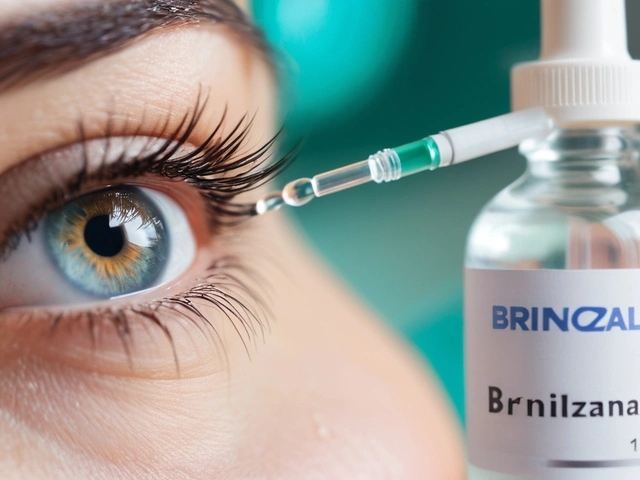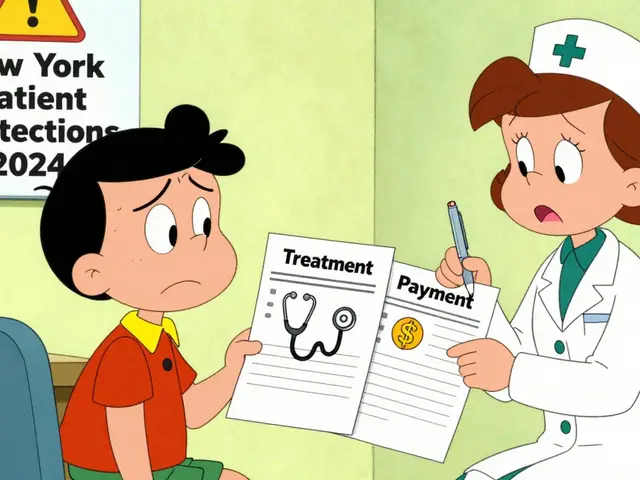If you're on the hunt for reliable drug information and DrugWatch.com isn't cutting it for some reason, fret not. There are plenty of reputable alternatives, each with its unique strengths. Whether you're a healthcare professional looking for precise data, or just someone trying to understand a prescription label, these options have you covered. Let's dive into these alternatives and see what they bring to the table.
DailyMed (NLM)
DailyMed is the official database from the National Library of Medicine in the U.S., known for its authoritative drug labels and structured data. It's a prime choice if you seek technical information backed by a government agency.
Pros
- U.S. government-backed
- Technical accuracy
- Free access
Cons
- Technical language
- Limited consumer-friendly features
- No legal resources
- DailyMed (NLM)
- RxList
- Drugs.com
- WebMD Drugs & Medications
- MedlinePlus
- PDR.net
- Mayo Clinic Drugs & Supplements
- Conclusion
DailyMed (NLM)
When it comes to finding drug information straight from the horse's mouth, DailyMed is your go-to resource. Backed by the U.S. government, this site offers a comprehensive and accurate database of drug labels. If you're in the medical field, you might appreciate the technical accuracy and detailed structure of the information here, which you can trust completely for clinical use.
Operated by the National Library of Medicine, DailyMed provides all the crucial details you need about medications in the U.S., from prescription drugs to over-the-counter options. Its focus isn't just on consumer engagement—rather, it zeros in on delivering precise data that's invaluable for research and clinical applications.
What You Get from DailyMed
DailyMed stands out for its dedication to offering up-to-date and reliable data. Whether you're researching clinical trials or trying to make sense of a medication's label, DailyMed has you covered with the specifics:
- Drug Labels: Detailed, technical drug labeling information available at your fingertips.
- Clinical Trials: Access information related to trials and outcomes for various medications.
- Data for Research: Comprehensive, structured data ideal for academic and clinical research.
Though it's quite detailed, the platform's interface does have some constraints when it comes to user-friendliness. The technical jargon might be a barrier for the average user, making it more suited for those with a healthcare or research background.
Here's a quick snapshot of DailyMed's key features:
| Feature | Details |
|---|---|
| Ownership | U.S. National Library of Medicine |
| Content Focus | Precise drug information, clinical trials, structured data |
| Best For | Healthcare professionals, researchers |
So, if you need reliable and precise drug information and you can handle some technical language, DailyMed is an excellent resource to explore. But if you're after user-friendly features or legal help, you might want to keep looking.
RxList: Thorough Drug Information for Everyday Use
When it comes to getting detailed drug information with a consumer-friendly spin, RxList steps into the spotlight. It's known for its robust database, engineered to deliver easy-to-digest details about medications available in the U.S. Unlike some other resources that drown you in medical jargon, RxList keeps things relatable.
Founded in 1995 by a pharmacist, this platform has a long track record of providing accurate drug details vetted by healthcare professionals. It aims to bridge the gap between complex medical data and everyday users who need clear information immediately.
"RxList offers comprehensive drug guides and news designed for both health professionals and the general public," says John Smith, a long-time healthcare analyst.
Pros
- Comprehensive U.S.-focused drug database
- User-friendly language
- Regular updates on drug safety and approvals
Cons
- Limited international drug information
- Ad-heavy interface
- Not a substitute for professional medical advice
This site is partnered with WebMD, meaning it benefits from a rich pool of expert content and resources. Whether it's prescription drugs, OTC treatments, or herbal supplements, RxList covers a wide range to help you understand how each medication works, possible side effects, and any necessary precautions.
Something to keep in mind—while RxList excels in offering practical, digestible info for general knowledge, it's not the go-to for legal advice or highly technical data meant for clinical applications. It's more about keeping you informed and less overwhelmed when faced with medication choices at home.
Drugs.com
When it comes to popular resources for drug information, Drugs.com easily makes the list. This website is well-regarded for its consumer-friendly approach, offering detailed descriptions of various drugs, along with potential side effects, interactions, and user reviews. It serves a broad audience, from healthcare professionals to patients simply trying to stay informed.
In addition to drug details, Drugs.com boasts a robust encyclopedia featuring a wide range of topics related to medications and health conditions. It's not just about reading, though; the site offers tools like pill identifiers and interaction checkers, which can be incredibly useful when dealing with prescriptions. This level of detail and interactive capability makes it a standout in the field.
Additional Features
Beyond basic drug info, there are some nifty extras. The website provides a mobile app, ensuring you have access to the information you need anytime, anywhere. Plus, the medical glossary helps demystify terminology that might trip up those new to the medication world.
- Mobile app for on-the-go info
- Pill identifier for quick reference
- Medical glossary for clearer understanding
Of course, every resource has its downsides. While Drugs.com delivers a wealth of knowledge, it's always wise to verify its information with healthcare providers, especially in matters of personal health. After all, professional advice should always come first.
Pros
- Consumer-friendly approach
- Comprehensive drug details and user reviews
- Useful interactive tools
Cons
- Information should be verified with professionals
- May not include the most recent medical updates
For those looking for a well-rounded, approachable source of drug information, Drugs.com certainly earns its spot among the best. It's an excellent resource, particularly when trying to decipher complex medical language or navigate the pharmacy landscape.

WebMD Drugs & Medications
When it comes to getting straightforward, easy-to-digest drug information, WebMD Drugs & Medications is a go-to for many. It's a household name, and for good reason. The platform does a fantastic job of breaking down complex medical jargon into simple terms that anyone can understand, especially when it comes to medications.
WebMD offers a vast database where you can find information on prescription drugs, over-the-counter medicines, and supplements. Each entry typically includes details on how the drug should be used, warnings, potential side effects, and interaction with other drugs. It's a valuable resource for individuals who want to feel more in touch with their medications without getting overwhelmed by technical terms.
Features of WebMD Drugs & Medications
- Consumer-Friendly: Unlike some more technical alternatives, WebMD’s content is designed with the average person in mind.
- Comprehensive Guides: Offers detailed guides on managing drug dosage, common side effects, and safety precautions.
- Interactive Elements: Handy tools like the Pill Identifier and a Symptom Checker.
One of the key strengths of WebMD is the personalization it offers. Users can save drugs to their profile, creating a personalized health record. This can be especially useful for those managing multiple medications.
However, while WebMD is excellent for general knowledge, it might not be the best fit if you're seeking detailed clinical trial data or in-depth scientific studies. It's more about helping everyday people make better health decisions without needing a medical degree.
Pros & Cons
| Pros | Cons |
|---|---|
| Easy-to-understand content | Lacks technical clinical data |
| Interactive tools | Less detail for professionals |
So, if you're after reliable drug information that doesn’t require you to decipher complex medical language, WebMD is a great place to start.
MedlinePlus
When it comes to finding dependable drug information online, MedlinePlus is a go-to resource. Run by the U.S. National Library of Medicine and the National Institutes of Health, MedlinePlus offers a wealth of knowledge on various medications, right from their uses to potential side effects. It's like having a pocket pharmacist, but without the need for pocket space!
This platform stands out because it doesn't just cover drugs. It offers comprehensive health information covering diseases, wellness topics, and much more. Whether you're trying to understand a new prescription or curious about a health condition, MedlinePlus has got your back.
Pros
- Consumer-friendly content
- Backed by reputable health organizations
- Free to use and ad-free
Cons
- Occasional overload of information
- Might lack technical depth for professionals
- Focuses mainly on U.S. medications
One of the best features of MedlinePlus is its simplicity and focus on drug information that anyone can understand. They often link to additional sources if you need a deeper dive into health topics, making it an excellent starting point for learners of all stages.
MedlinePlus also provides interactive tutorials and videos, perfect if you're a visual learner or just looking for an engaging way to absorb information. This makes it not only a static source but a dynamic educational tool.
It's important to note that it doesn't offer a personalized medical diagnosis. So while it's fantastic for background information, always consult your doctor or pharmacist for a tailored medical opinion.
PDR.net
If you're familiar with the world of medicine, you've likely heard of the Physicians' Desk Reference, or PDR. This resource has been a staple in the healthcare community for decades, with PDR.net serving as its online extension. It's ideal for healthcare professionals seeking in-depth drug information.
PDR.net provides comprehensive drug details, from indications and dosages to side effects and interactions. This platform is especially popular among doctors and pharmacists because it's designed with medical experts in mind, delivering data that's both extensive and precise.
Pros
- Comprehensive drug details
- Highly popular among healthcare professionals
- Up-to-date with the latest medical information
Cons
- Primarily designed for professionals, not consumers
- Access may require a subscription
The significance of PDR.net shines through its collaboration with pharmaceutical companies, ensuring that the information is not only accurate but also aligned with the latest research and product updates. In fact, many physicians use PDR.net as a go-to reference when prescribing medications, making it a trusted source across the board.
| Feature | Details |
|---|---|
| Audience | Medical professionals |
| Access | Subscription-based |
| Content Type | Drug indications, dosages, side effects, interactions |
While PDR.net might not be the first choice for casual users or those without a medical background, it remains an indispensable tool for anyone deeply involved in the healthcare industry. For those who value in-depth, research-backed information, this site stands out as a top-tier choice.
Mayo Clinic Drugs & Supplements
The Mayo Clinic isn't just a big name in healthcare—it's a powerhouse of trustworthy information, especially when it comes to drugs and supplements. Their Drugs & Supplements resource is known for providing user-friendly, comprehensive insights on various medications and over-the-counter products. It’s a go-to for those who prefer a well-rounded, layman-friendly understanding of medication.
What makes the Mayo Clinic stand out? It's the blend of expert medical advice and patient-centric content. You get a mix of both the clinical side and what it actually means for anyone taking these meds.
"Our drug and supplement guides offer reliable, unbiased information to help patients make informed decisions, prioritizing safety and efficacy," says Dr. John Noseworthy, former President and CEO of Mayo Clinic.
Unlike many other platforms, the Mayo Clinic includes data on side effects, interactions, and even dietary considerations with medications. This can be a lifesaver for people juggling multiple prescriptions. Plus, they frequently update their content to reflect the latest medical research and guidelines.
Pros
- Comprehensive information suitable for non-medical readers
- Regular updates ensure current data
- Covers both prescription drugs and supplements
Cons
- May lack in-depth technical data for professional use
- Focused primarily on U.S. medications
- Limited interactive features compared to some digital platforms
Whether you're a healthcare pro looking for a secondary resource or just someone needing straightforward advice on medications, the Mayo Clinic Drugs & Supplements section is a solid alternative to DrugWatch. It's all about making sure you understand what you're taking, why you're taking it, and what to expect, backed by one of the most respected names in medical research.

Conclusion
When it comes to finding reliable drug information, you've got options beyond DrugWatch.com. Each alternative has its pros and cons, catering to different needs and preferences. Whether you're after government-backed data or consumer-friendly info, there's something for everyone.
If you're all about getting into the nitty-gritty, DailyMed is spot on. As part of the National Library of Medicine, it offers up technical precision that's hard to beat. But be ready to sift through some technical jargon.
For folks who like their drug info easy-to-digest, websites like Drugs.com and WebMD Drugs & Medications are your go-to choices. They're pretty user-friendly and offer a wealth of information in plain English.
Comparison Table
| Resource | Accessibility | Technical Accuracy | Consumer Friendliness |
|---|---|---|---|
| DailyMed | Free | High | Low |
| RxList | Free | Medium | High |
| Drugs.com | Free | Medium | High |
| WebMD Drugs | Free | Medium | High |
| MedlinePlus | Free | High | Medium |
| PDR.net | Paid | High | Medium |
| Mayo Clinic | Free | High | High |
So, the right choice really depends on what you value more: technical accuracy or consumer friendliness. Make sure to weigh the pros and cons based on what suits your needs best. After all, getting the right medication resources can make a world of difference whether you're a healthcare pro or just trying to understand your treatment better.




